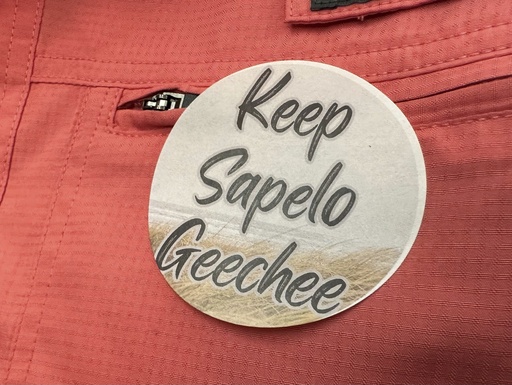
Savannah, Ga. — A judge has intervened to prevent a Georgia county from advancing plans for larger homes in Hogg Hummock, a small island community inhabited by the descendants of Black slaves, pending a ruling from the state’s highest court regarding residents’ ability to contest zoning alterations via referendum.
Located on Sapelo Island, Hogg Hummock was established post-Civil War by former slaves who had worked on a cotton plantation owned by Thomas Spalding. It stands as one of the remaining Gullah-Geechee communities in the South, where its residents have maintained a distinct culture largely due to their isolated existence.
In the face of newly proposed zoning changes, the island’s few dozen Black residents have spent the last year opposing local officials in McIntosh County. In September 2023, county commissioners voted to increase the size limits of homes within Hogg Hummock, effectively undermining longstanding zoning restrictions designed to protect the area’s modest housing—a policy that has been in place for nearly 30 years.
Residents and their supporters attempted to overturn these zoning changes by utilizing a less common aspect of Georgia’s constitution, which allows citizens to initiate special elections to challenge local legislation. They successfully gathered over 1,800 signatures for a referendum, which was set to take place on October 1.
However, McIntosh County commissioners initiated a lawsuit to halt the referendum. Just days before the election and after many early ballots had already been placed, Senior Judge Gary McCorvey ruled against holding the vote, agreeing with the commissioners that zoning laws cannot be overturned by a public vote.
The residents of Hogg Hummock have since appealed the judge’s decision to the Georgia Supreme Court, aiming to reinstate and reschedule the referendum. On a recent Monday, Judge McCorvey responded positively to the residents’ request to prevent county officials from issuing building permits and permit applications under the new zoning law until the Supreme Court has rendered its decision.
The amended zoning regulations permit homes in Hogg Hummock to reach a maximum size of 3,000 square feet (278 square meters), significantly expanding the previous cap of 1,400 square feet (130 square meters) for heated and air-conditioned areas. Residents argue that allowing larger homes would push property taxes higher, pressuring them to sell land that has been in their families for generations.
In his ruling, McCorvey noted that residents of Hogg Hummock have a “chance of success” in their appeal against the cancellation of the referendum and expressed concern that allowing larger homes could inflict lasting damage on the community. “A victory in the Supreme Court would be hollow indeed, tantamount to closing a barn door after all the horses had escaped,” the judge commented.
Legal representatives for McIntosh County contended that blocking an ordinance that had been in place for over a year was unjust. As per the judge’s order, any new building permits issued must conform to the stricter regulations that existed prior to the newly adopted zoning law.
While the controversy over Hogg Hummock’s zoning was unfolding, Sapelo Island experienced a separate tragedy. On October 19, hundreds of visitors were on the island when a walkway at the state-operated ferry dock collapsed, resulting in seven fatalities. This incident coincided with Hogg Hummock’s annual Cultural Day festival, a moment meant for celebration amidst concerns about the community’s precarious future.
The Georgia Supreme Court has yet to announce a hearing date for the Sapelo Island case, although it previously upheld a citizen-led referendum in 2022 that stopped a commercial spaceport from being constructed in coastal Camden County. This successful vote also stemmed from a provision in Georgia’s constitution, which allows for special elections on local laws if a petition garners signatures from 10% to 25% of a county’s voters, contingent upon the population size. Conversely, Judge McCorvey determined in the Sapelo Island case that citizens cannot initiate special elections to nullify zoning ordinances, as these are classified under a different section of the state’s constitution.
